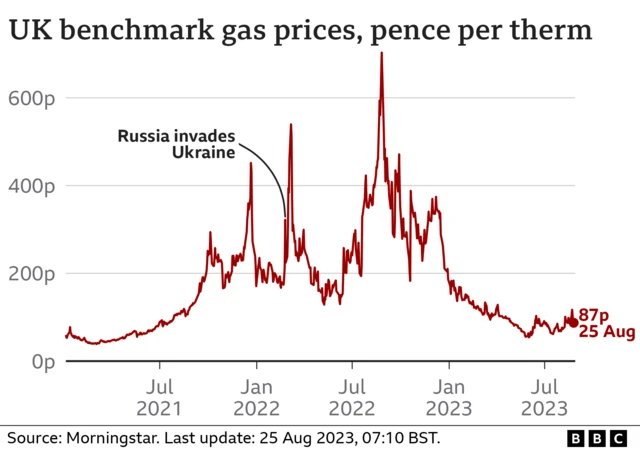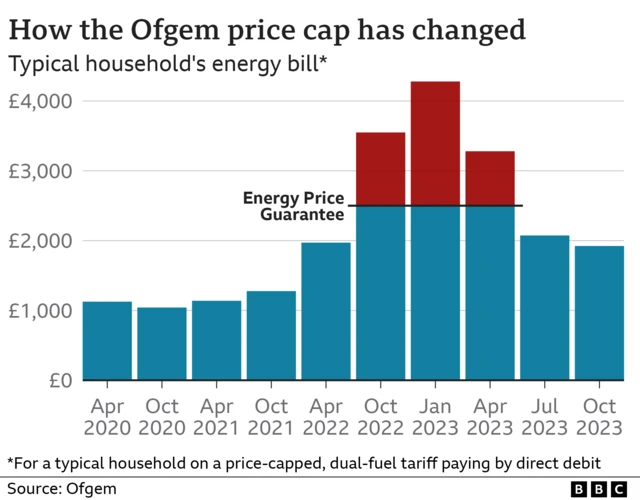WATCH: 'Energy switching can pay off but check the small print'published at 09:37 BST 25 August 2023
Some energy suppliers have started to offer deals on their tariffs again.
An energy tariff is how customers are charged for their gas and electricity - they can be variable where prices rise and fall with the market or fixed at a price for a set amount of time.
Energy analyst Ellen Fraser from Baringa Partners says there are savings to be made but be sure to read the small print.








